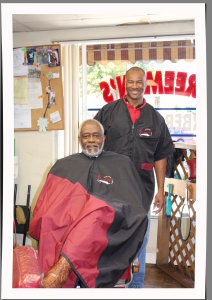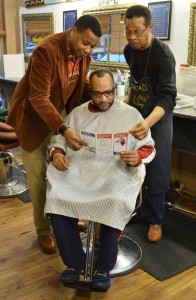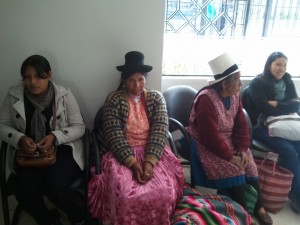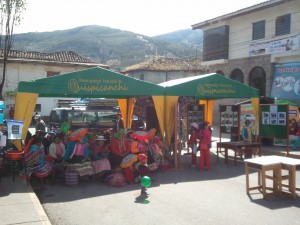Posted on September 1st, 2015 in Uncategorized | Comments Off on Dr. Luque leads HCC Cancer Control Program Journal Club
Dr. Luque has been selected to lead the Hollings Cancer Center Cancer Control Journal Club. The journal club meets the first Thurday of the month in HCC 121. Dr. Luque will present “Increasing Cervical Cancer Screening in the United States-Mexico Border Region” by Thompson, B. et al. on Thursday September 3 at 12 noon. Lunch is provided.
Article Link: http://www.ncbi.nlm.nih.gov/pmc/articles/PMC4183147/
Posted on May 18th, 2015 in Uncategorized | Comments Off on Dr. Luque accepts new position at Medical University of South Carolina
Dr. Luque has accepted an offer to be an Associate Professor in the Department of Public Health Sciences and Hollings Cancer Center at the Medical University of South Carolina in Charleston. His new appointment begins in August this year. He made the recent announcement via his twitter account @drluque. Luque said he looks forward to the challenges of developing community-based interventions to increase access to cancer screening among underserved populations in the Southeast U.S. and in Latin America. Luque expressed his willingness to continue to collaborate with his former colleagues at Georgia Southern on both ongoing and future research projects.
Posted on March 2nd, 2015 in Uncategorized | Comments Off on Barbershops for Prostate Cancer Education
Investigators from the Jiann-Ping Hsu College of Public Health at Georgia Southern University led by Dr. John Luque conducted a collaborative feasibility study titled “Barbers Against Prostate Cancer” funded by the National Institute on Minority Health and Health Disparities to the Center of Excellence on Health Disparities in Rural Populations. The project engages barbershops for prostate cancer education in two rural African-American communities. The barbershop is a promising setting where African-American men might receive information and education about prostate cancer. In this study, the researchers assessed the feasibility of engaging rural barbershops as venues for barbers to deliver a prostate cancer education intervention to increase informed decision-making for prostate cancer screening among their customers. Based on the multiple interactions with the barbers, there was high receptivity to the topic and consensus about the importance of addressing prostate cancer in their communities. Rural barbershops represent feasible venues for delivering a prostate cancer education intervention. The findings were published onli ne in the Journal of Cancer Education in an article entitled, “Feasibility Study of Engaging Barbershops for Prostate Cancer Education in Rural African-American Communities.”
ne in the Journal of Cancer Education in an article entitled, “Feasibility Study of Engaging Barbershops for Prostate Cancer Education in Rural African-American Communities.”
Posted on October 1st, 2014 in Uncategorized | Comments Off on Barbers Against Prostate Cancer is underway
After two years of planni ng, the Barbers Against Prostate Cancer intervention has been launched. Barbers are using an educational toolbox to educate their customers about informed decision making with prostate cancer screening. We have 6 barbershops in Statesboro participating and 6 barbershops receiving the delayed intervention in Milledgeville. Shown here is GSU professor Dr. Levi Ross receiving pertinent information from a couple of barbers. That reminds me, it is time for a haircut!
ng, the Barbers Against Prostate Cancer intervention has been launched. Barbers are using an educational toolbox to educate their customers about informed decision making with prostate cancer screening. We have 6 barbershops in Statesboro participating and 6 barbershops receiving the delayed intervention in Milledgeville. Shown here is GSU professor Dr. Levi Ross receiving pertinent information from a couple of barbers. That reminds me, it is time for a haircut!
Posted on September 7th, 2014 in Uncategorized | Comments Off on Dr. Luque Elected to SMA Board
Dr. John (Juan) Luque has been elected as a Member-at-Large on the Society for Medical Anthropology (SMA) Board for a 3-year term. The Society for Medical Anthropology is the world’s largest association of professional and practicing medical anthropologists. One of the largest sections of the American Anthropological Association, they serve medical anthropology graduate students, practicing anthropologists, scholars, and scholar activists who address issues of local, national and international health importance. It is the hub of an active research community and a storehouse for information supporting the endeavors of medical anthropologists and their colleagues in allied social science fields.
Posted on July 15th, 2014 in Uncategorized | Comments Off on Salud es Vida featured on NCI’s Behavioral Research Program Grantee Profile
“During the course of our present study, we lost one of our promotoras from the Latino immigrant community to cancer. This unfortunate event has only strengthened our resolve to educate even more women about cancer prevention and screening.”
http://staffprofiles.cancer.gov/brp/granteeList.do
Posted on May 19th, 2014 in Uncategorized | Comments Off on Research Study Progress in Cusco
Our NCI-funded research study with CerviCusco is well underway. We are in the middle of Phase 1 which consists of key informant interviews and patient surveys. Phase 2 involves the development of a fotonovela and radio spots. We completed our first focus group in Quisquipanchi Province with Quechua women to collect data for the materials. Here are some pictures from a recent health fair.

Posted on March 27th, 2014 in Uncategorized | Comments Off on Time, trust and transparency keys to minority biospecimen collection
(SACRAMENTO, Calif.) — Blood and tumor specimen collection from cancer patients is critical to research into new, more personally targeted therapies. But biospecimen collection among diverse populations lags far behind that of whites.
In work aimed at boosting these collection rates, researchers at UC Davis and collaborators at three other institutions found that Asian, African and Hispanic Americans are open to donating specimens for research when clinicians and scientists adopt the right strategies.
Based on an exploration of barriers to biospecimen collection among ethnic and racial minority groups, they recommended three fundamental strategies for researchers:
- Commit to investing the time necessary to developing community relationships
- Earn community trust
- Be transparent, use clear communication and culturally and contextually appropriate education
The findings were published online this week in the Journal of Community Genetics in an article entitled “Engaging Diverse Communities in Biospecimen Donation for Cancer Research.” It is the first such research paper to analyze cognitive, communication and sociocultural factors affecting biospecimen donation among diverse racial and ethnic populations. The researchers investigated these dynamics in three different parts of the United States.
Read Full Story here: http://www.ucdmc.ucdavis.edu/publish/news/cancer/8790
Posted on March 1st, 2014 in Uncategorized | Comments Off on Building Promotora Programs in Rural Southeast Georgia for Cervical Cancer Prevention
READ Anthropology News – Society for Medical Anthropology Guest Column: In some parts of rural Southeast Georgia an underlying tension characterizes interethnic relations between Latino immigrant farmworkers and Whites and…More



